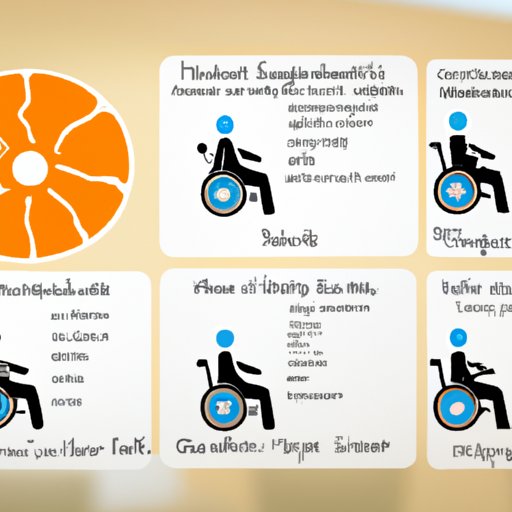Introduction
Multiple sclerosis (MS) is an autoimmune disorder where the immune system mistakenly attacks the central nervous system. This can cause a variety of symptoms, including vision problems, fatigue, muscle weakness, coordination issues, and more. If you’re experiencing any of these symptoms, it’s important to see a neurologist to get tested for MS.

Scheduling an Appointment with a Neurologist
The first step in getting tested for MS is scheduling an appointment with a neurologist. During this initial appointment, your neurologist will ask about your medical history, as well as your family’s medical history. They may also do a physical exam and order some blood tests. It’s important to be honest and open during this appointment, as it will help your doctor determine if further testing is necessary.
When preparing for your appointment, it’s helpful to make a list of your symptoms and questions to ask. You should also bring a list of any medications you’re taking, as well as copies of recent medical records or test results. It’s also a good idea to bring a family member or friend with you, as they can help take notes and provide emotional support.
Physical Exam and Blood Work
Your neurologist will likely perform a physical exam to look for any signs of MS. They may also order some blood tests to check for signs of inflammation or infection. While these tests can’t definitively diagnose MS, they can help rule out other potential causes for your symptoms.
“Blood tests are used to assess markers of inflammation and to look for evidence of an active infection, which can potentially mimic an MS-like illness,” says Dr. Bruce Bebo, executive vice president of research at the National MS Society. “These tests can also help identify other medical conditions that may need to be treated before a diagnosis of MS can be made.”
Imaging Tests
If your neurologist suspects MS, they may order an imaging test such as an MRI or CT scan. These tests use magnetic fields and x-rays to create detailed images of your brain and spinal cord. Your doctor will be looking for lesions, or areas of damaged tissue, which can indicate MS.
“MRI scans are the gold standard for diagnosing MS because they provide detailed images of the brain and spinal cord,” says Dr. Bebo. “They can detect the presence of lesions that may be indicative of MS.”
Lumbar Puncture
Your neurologist may also order a lumbar puncture, also known as a spinal tap. This procedure involves inserting a needle into your lower back to collect a sample of cerebrospinal fluid. This fluid can then be tested for antibodies that are associated with MS.
“A lumbar puncture is used to detect certain proteins that are associated with MS,” says Dr. Bebo. “It can also be used to rule out other diseases that can cause similar symptoms.”
Signs of Optic Neuritis, Muscle Weakness, and Coordination Problems
Your neurologist may also look for signs of optic neuritis, muscle weakness, and coordination problems. These can all be indicative of MS. For example, optic neuritis is a condition that causes inflammation of the optic nerve, which can lead to blurred vision or even blindness. Muscle weakness and coordination issues can also be signs of MS.
“Optic neuritis, muscle weakness, and coordination problems can all be signs of MS,” says Dr. Bebo. “Your neurologist will look for these signs to help diagnose the disease.”
Conclusion
Getting tested for MS is a complex process that involves physical exams, blood tests, imaging tests, and other assessments. It’s important to be prepared for your appointment by making a list of your symptoms and questions to ask, as well as bringing copies of recent medical records or test results. By understanding the testing process and being prepared, you can ensure that you get the best care possible.
(Note: Is this article not meeting your expectations? Do you have knowledge or insights to share? Unlock new opportunities and expand your reach by joining our authors team. Click Registration to join us and share your expertise with our readers.)
